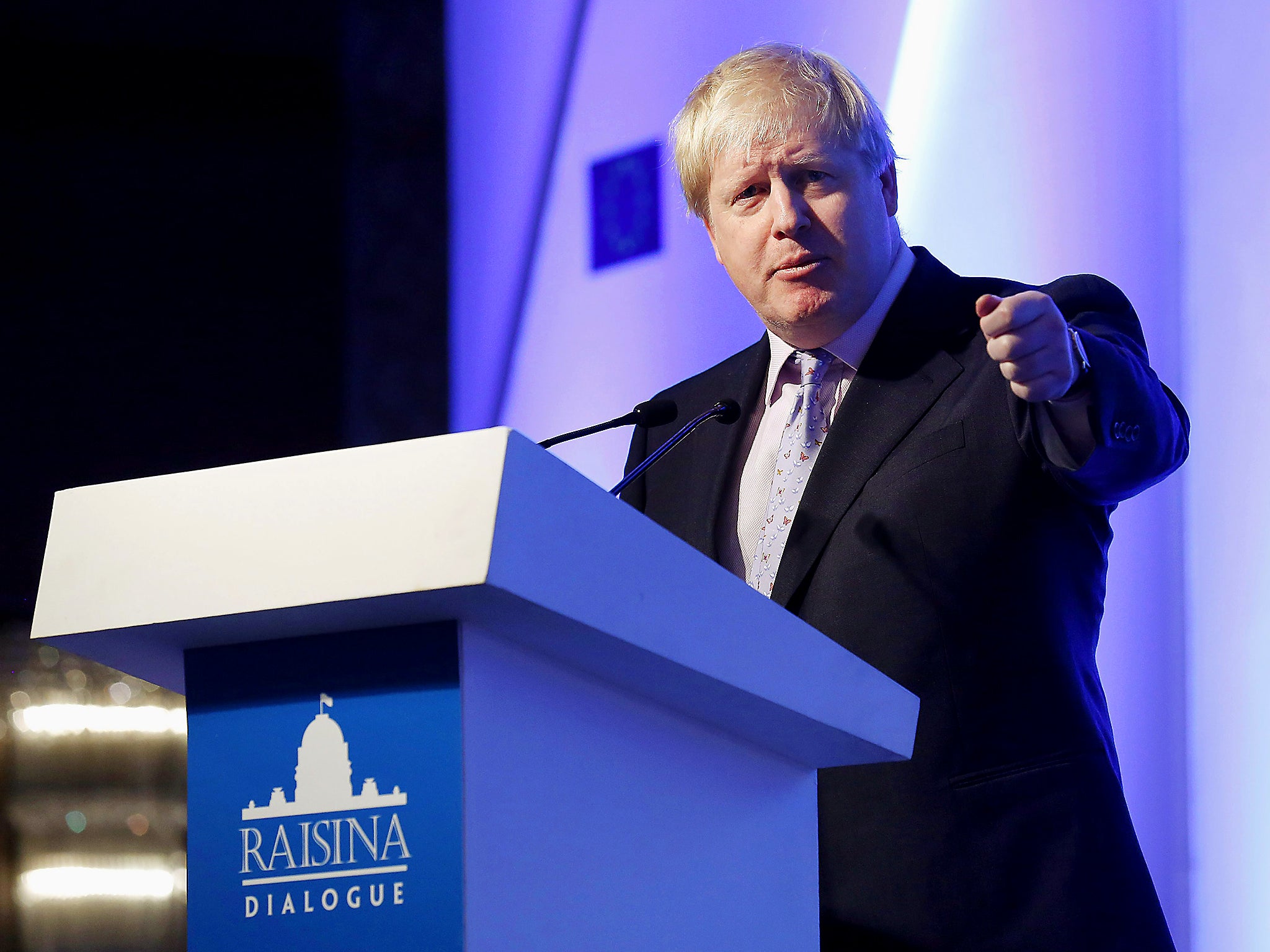UK post-Brexit trade deal with India threatened by Theresa May's visa crackdown
‘We cannot separate free movement of people from the free flow of goods, services and investments’

One of Britain's most important post-Brexit trade partnerships could be at risk due to Theresa May's refusal to reform visa restrictions for Indian citizens.
The Prime Minister has insisted leaving the EU would allow Britain to find other partners abroad and India, the world’s fastest growing major economy, was the first country she visited, accompanied by a large business delegation, outside Europe after the referendum.
But as the offensive to secure a trade deal continued on Wednesday, senior diplomats and Indian government officials warned Ms May’s refusal to reform visa restrictions could scupper her hopes.

Boris Johnson has flown in to Delhi to meet members of the government, business leaders and, he hopes, the Prime Minister Narendra Modi. The Foreign Secretary is due to explain the UK’s position on Brexit and stress how leaving the EU offers further commercial and industrial opportunities for the two countries.
“I think the time is fast upon us when we need to turbo charge this relationship with a new free trade deal, such as we will shortly be able to do,” Mr Johnson said. “We can't negotiate it now, but we can sketch it out in pencil on the back of an envelope. This is not the time to put up barriers between our countries. This is time to break down barriers that will in the long term to create the jobs, the good jobs with good incomes that offer real hope and comfort… Let us work together, Britain and India are united by our values and in many ways by our approaches to the problems of the world and it is working together to improve our security that we will allow the freedom and the openness that will drive our long term prosperity.”
However, the issue of visas quickly surfaced with a senior Indian official saying “mobility issues are of importance to us; we cannot separate free movement of people from the free flow of goods, services and investments”. And S Irudaya Rajan, an advisor to the Indian government on migration issues added: “India is an important country for the UK and curbing the flow of good minds, whether they are students or skilled workers, cannot be good for the UK.”
In London, as Mrs May revealed that there will be a “hard Brexit” leaving the EU single market and customs union, India’s new high commissioner to the UK commented that the issue of the visas is not going to go away. Yashvardhan Kumar Sinha contrasted the stance taken by Britain with other countries on admitting students and workers from fields like IT into the country.
“In the field of education we have a bit of a problem. We have countries like US, Australia, Germany and France who are actively going on to campuses in India to try and attract students there”, he said. “The numbers in these countries have gone up significantly, but for the UK it has actually fallen quite a lot. There is something going wrong here because the UK has obviously been the first preference for Indian students. We need to see how we can ensure that the UK gets or attracts good students from India. Indian students are doing extremely well wherever they go.”
The numbers of students from India fell to 16,745 in 2015-16 from 29,900 in 2011-12. Students are included in the total numbers of migrants, although they are meant to be temporary visitors. Critics say that this cutting numbers of students is one of the cosmetic ways the government is saying they are cutting the numbers of migrants.
Mr Sinha also spoke about restrictions affecting IT workers. “In Europe the UK is again our first port of call and I think for us it’s very important our IT professionals can come here and go back. They contribute immensely not only to the local economy but the global economy, which is what they are doing in Silicon Valley and the rest of the world. It is very important that both countries engage in a manner beneficial for both India and the UK,” he said.
However, the high commissioner also said “of course Brexit is a challenge but I see it more as an opportunity. Indian companies and businesses are looking forward to engaging more closely with their British counterpart. There is good economic engagement between the two countries and that is why we need to talk about the visa situation.”
But the chance of the visa regulations being relaxed seems remote. Ms May, as home secretary was responsible for tightening the visa regime and, at the time of her visit to India last November she declared that the current system will not be changed. “Trade is an important part of our relationship with India. India is the third-biggest investor into the UK – the second biggest creator of private sector jobs in the UK; and the UK is the biggest G20 investor in India, but there is more we can do,” she held.
Join our commenting forum
Join thought-provoking conversations, follow other Independent readers and see their replies
Comments
Bookmark popover
Removed from bookmarks